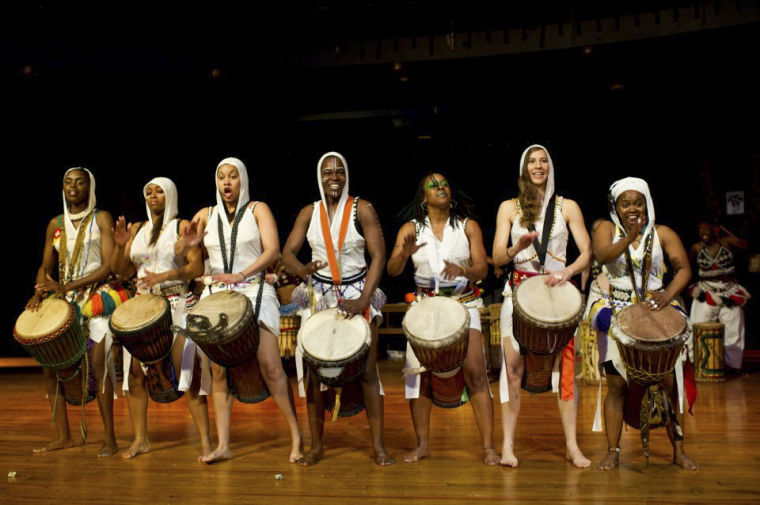Dancing with purpose
May 12, 2014
With the goal of empowering women through dance, a group of strong female dancers banded together in 2007 to create their own nonprofit African dance company. Under the guidance of Tosha Alston, artistic director, and Mashaune Hardy, booking manager, Ayodele Drum & Dance has offered South Side residents the chance to benefit from practicing African dance for the past five years.
The company celebrated its fifth anniversary May 10 with a concert showcasing their drumming and dance talents at Sherman Park, 1301 W. 52nd St. Chicagoans can celebrate with Ayodele throughout summer with African dance classes on Thursday nights from 6:30 p.m.–8 p.m. through December 18.
Ayodele Drum & Dance is currently located in Sherman Park and sponsored by the Chicago Park District’s Art Department residency program.
African dance traditionally unites spectators and performers to encourage community interactions rather than individualism. Doris Green, a retired Fulbright scholar and cultural specialist, wrote in a September 2011 article in the Journal of Pan African Studies that traditional African dance links music, rituals, ceremonies and events.
Alston said African dance in America fosters cultural awareness and inner strength for many participants, while maintaining its sacredness.
Ayodele, which means “joy in the home,” teaches students about their African heritage. The company’s 23 members perform concerts in African clothing while dancing, drumming and singing in traditional African style. They also blend elements of traditional ballet, following in the footsteps of international dance company Les Ballets Africains, which created the hybrid genre. The dances they practice are choreographed but allow personal expression.
“African dance, as well as the vibrations from the music and how penetrating it is, does something in a healing sense for the body,” Alston said. “Being an African-American woman, embodying traditional characteristics from the continent serves a better impact, especially for women in more urban communities.”
Alston began dancing when she was 6 years old, taking tap, ballet and modern dance classes. She switched to African dance when she was 14 and fell in love with the way practicing traditional African dance made her feel empowered. Upon entering adulthood, Alston left her hometown of Brooklyn, N.Y. and followed one of her most influential dance instructors to Chicago to do African dance for Muntu, an African dance company.
Although the company aims to involve black women, students from a variety of backgrounds are welcome to join, Alston said.
“We don’t discriminate because we feel like the value of what African dance has to offer is more important to share than to try to seclude just a certain group of people,” Alston said.
Marvin Tolbert, supervisor at Sherman Park, said he thinks learning African dance has a positive impact on the community. Through his interactions with the women of Ayodele and watching their performances, he said he thinks it is important that they continue to teach African dance.
“I think it gives some sense of belonging, knowing that you have some type of heritage,” Tolbert said. “It’s very good for the community because they don’t get an opportunity to see that as much as they should.”
Khalidah Kali, an African dance instructor at the Washington Park District, said she previously taught at the South Side YMCA for 12 years. She said she believes learning African dance can be powerful and said that people from all backgrounds and heritages should learn African dance.
“Everybody should have a global awareness of some kind,” Kali said. “We all should be able to get out of our own fish tanks and see the world through dance, reading, traveling, etc. just to expand mind, body and spirit.”








